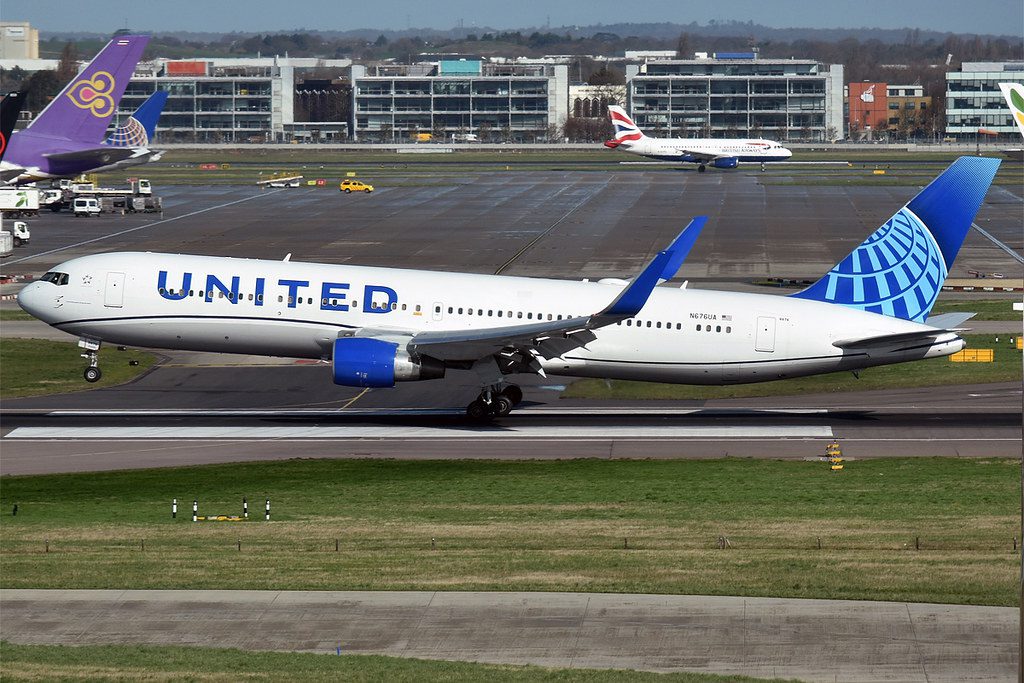Skift Take
Scott Kirby takes over as United's CEO on May 20. Kirby is positioning himself as the rare leader in corporate America who tells the truth to employees and shareholders. Some people don't like him for it. But his comments are refreshing.
 Skift Editor-at-Large Brian Sumers writes this column with a critical eye on the important global issues impacting the airline industry, from the middle seat of the last row in economy class to the boardrooms of the world's largest carriers.
Skift Editor-at-Large Brian Sumers writes this column with a critical eye on the important global issues impacting the airline industry, from the middle seat of the last row in economy class to the boardrooms of the world's largest carriers.
At a time when so many Americans want to wish the coronavirus away, in the airline industry and beyond, United Airlines President Scott Kirby is a refreshing voice, a decisive leader who tells the unvarnished truth and prepares for the worst, even if many wonder why he’s so alarmist. As Kirby, who becomes United’s CEO next week, said in early March, “hope is not a strategy.”
When several competitors downplayed coronavirus two months ago, Kirby wasn’t sugarcoating it, warning investors of impending catastrophe. What he said was shocking then, but turned out to be an underestimate. Revenue in April decreased 95 percent, compared to expectations, not the 70 percent he had warned might be possible.
On May 1, during United’s first quarter earnings call, Kirby again provided blunt commentary. On other calls, competitors acknowledged the obvious — demand is low and revenue lower— but often pivoted to happier talk, citing improved bookings, or TSA screening numbers showing more people moving security. Some spoke, hopefully, about a rebound, perhaps by summer.
Not Kirby. He told investors he didn’t know when demand would return, promising to prepare United for zero net demand through December, his worst-case scenario. He told them not to expect normal to return for some time, at least until Disney reopens theme parks and people sit in Paris cafes. He even said United might not trust a short-term booking bounce, saying the airline would move slowly to bring airplanes back, fearing a second wave of the virus.
Since then, Kirby moved to cut costs. United recently took the first steps toward furloughing as many 30 percent of pilots beginning October, after federal paycheck protection money runs out. If demand does not return, United is expected to move quickly to reduce staffing, rather than pay pilots and others not to work.
Next, United took more drastic action, unilaterally reducing weekly hours for front-line employees, from 40 hours to 30 hours. It backed down slightly after a union lawsuit and criticism from Congress, probably a prudent move since no one knows whether airlines have the right to reduce worker hours under the Cares Act. But Kirby is still expecting many employees to do the right thing, begging them to voluntarily accept fewer hours, or even leave the company. The airline needs to save cash.
Some employee unions are not happy. But Kirby’s not cutting hours or warning of layoffs or furloughs because he hates workers or wants to crush unions or screw the taxpayer. Instead, he claims to see what competitors do not — there are no quick fixes. To survive, he said, United needs to take action, even it means annoying workers, lawmakers or customers.
“There are no sacred cows,” he said on the earnings call. “Our responsibility to our employees, our customers and our shareholders is to make sure that United is here for the long-haul and provides as many good jobs as possible to our people.”
I’m no doctor, but simple data shows the United States does not have Coronavirus under control — far from it. Cases are rising and smart people say we could see tens of thousands, if not hundreds of thousands, more deaths. With that in the news, how many people will buy plane tickets?
Some, probably. Many have been cooped up for a couple of months. They’re frustrated and angry. As some state and municipal governments lift restrictions, people want to get back to normal. What they don’t understand is what Kirby has preached – the normal they seek probably not returning soon. Certainly not on airplanes: As McKay Coppins wrote in The Atlantic last week after taking a flight, “flying during a pandemic turned out to be more stressful—and surreal—than I’d planned for.”
Yes, there has been some improvement. Nearly all U.S. airlines said they hit bottom in early April, reporting business is on the upswing. But think about how much ground they have to make up. United made $11.4 billion in second-quarter revenue last year, and the airline isn’t going to come to close to that number selling cheap tickets to passengers in denial. United needs real consumer confidence to return to avoid layoffs or furloughs.
Perhaps United is in more trouble than some competitors. It has racked up considerable debt, and its route network, with so much long-haul flying, may not be suited for a recovery in which more Americans stay close to home. But let’s be clear: If conditions reaches a point where United fails, it is unlikely to be the only one.
Listening to these earnings calls, I have been shocked at how many airline executives don’t mimic Kirby’s approach. I can’t understand if they don’t agree with him, or if they understand as well as he does, but would rather not scare the shit out of their customers or employees. Maybe they don’t want to hurt anyone’s feelings, or think the faux happy talk is good business.
The thing about Kirby is, even if he’s wrong, he may win. People who have worked with him say he can be abrasive, and he’ll tell employees (or reporters) if they’ve said something dumb. But they also say he listens to others, staying open to new ideas backed by data. If Kirby sees improvement earlier, he’ll likely act decisively, even if it means contradicting his comments. While a less confident executive might double-down on an earlier strategy, Kirby is the type to change strategies overnight to steal a half point of market share.
But Kirby’s not leaving anything to chance, and if that means annoying some people, he seems OK with it. He would rather tell customers, employees and Congress the truth: The U.S airline industry is in peril.
“I’ve seen airlines in the past that weren’t in a financial position to make confident decisions,” he said in March, “and when faced with the drop in demand, crossed their fingers and hoped that the crisis would end.”
His candidness is refreshing.
The Daily Newsletter
Our daily coverage of the global travel industry. Written by editors and analysts from across Skift’s brands.
Have a confidential tip for Skift? Get in touch
Tags: coronavirus, covid-19, Scott Kirby, united airlines
Photo credit: A United Airlines Boeing 767-300. United is facing severe difficulties with its business. Anna Zvereva / Flickr

